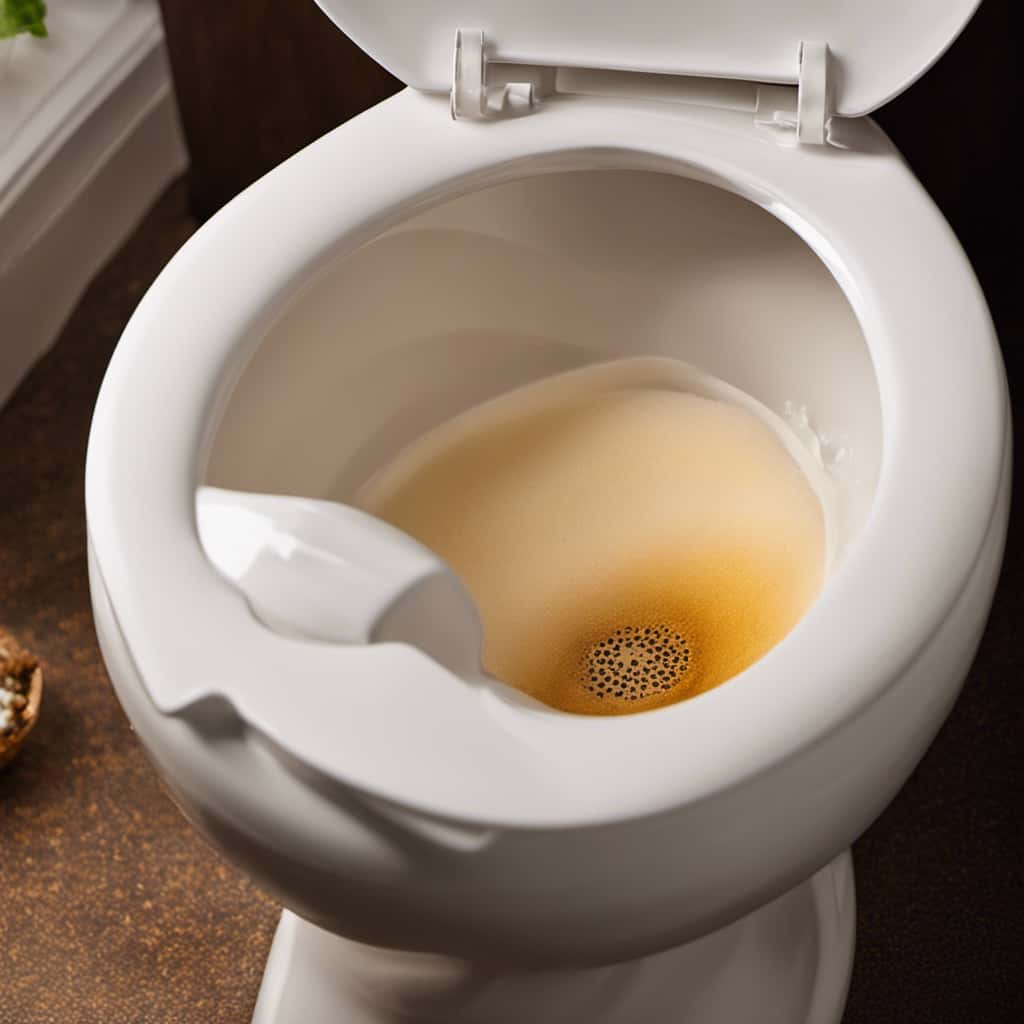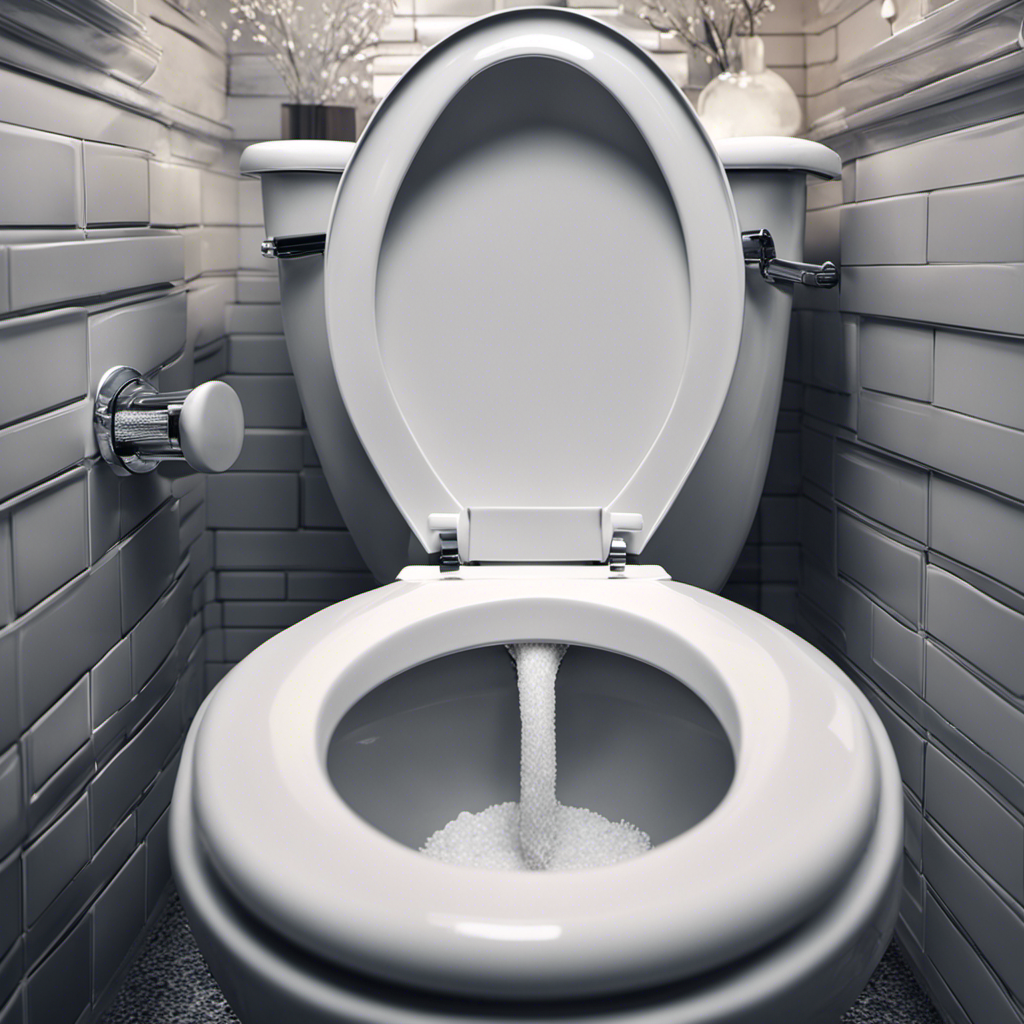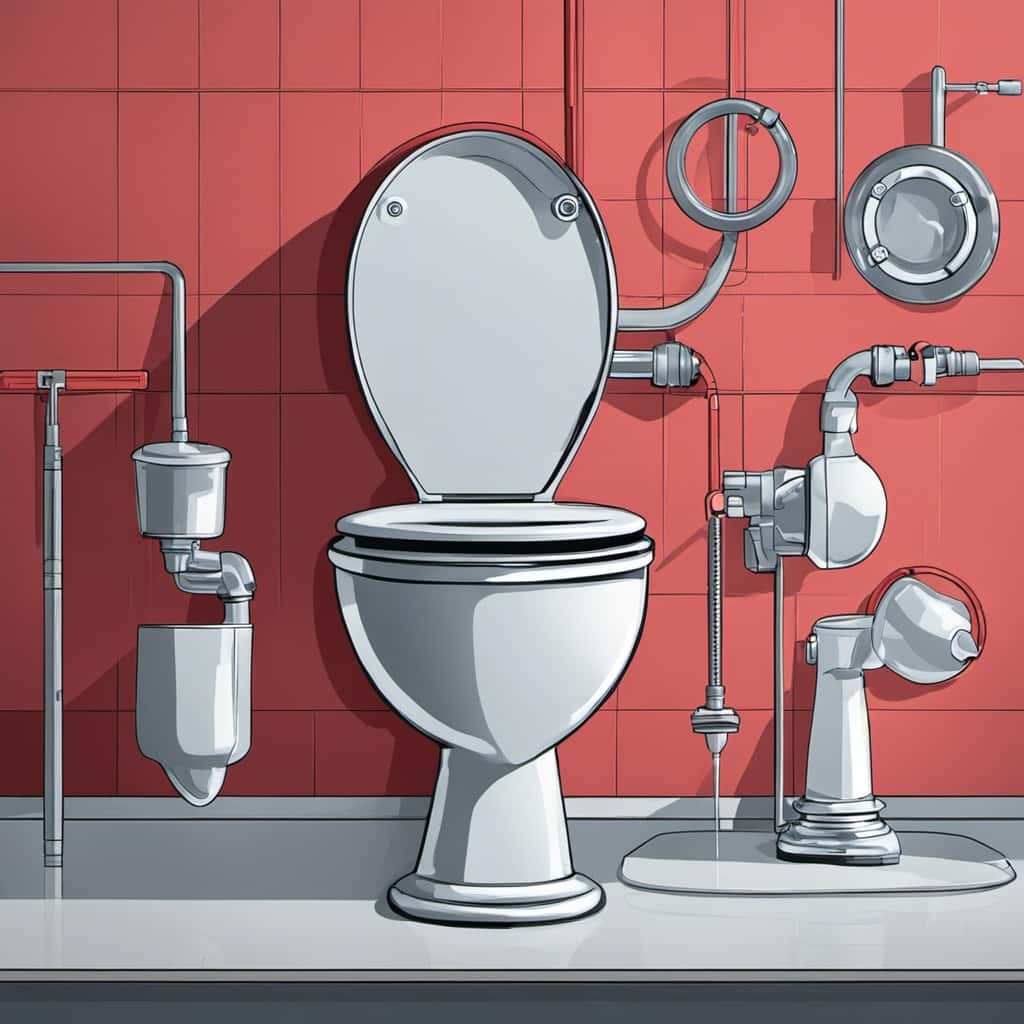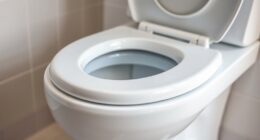Have you ever wondered why we can flush toilet paper but not paper towels? It may seem like a small distinction, but it has significant implications for our plumbing and the environment.
In this article, we will explore the composition, absorbency, and strength differences between toilet paper and paper towels. We will also delve into the impact of flushing paper towels on our plumbing and sewer systems, as well as the environmental consequences.
Let’s dive in and master the art of proper disposal and alternatives for paper towels.
Key Takeaways
- Toilet paper is designed to quickly absorb and disintegrate in water, while paper towels are highly absorbent and capable of soaking up spills and moisture.
- Flushing paper towels can cause blockages and backups in pipes, as they don’t break down easily in water.
- Paper towels in sewer systems interfere with wastewater treatment plants and can lead to contamination of water sources.
- Proper disposal of paper towels in the trash and exploring alternatives such as reusable cloths or towels can help minimize environmental consequences.
Composition of Toilet Paper Vs. Paper Towels
When comparing the composition of toilet paper and paper towels, it’s important to understand the differences in their materials.
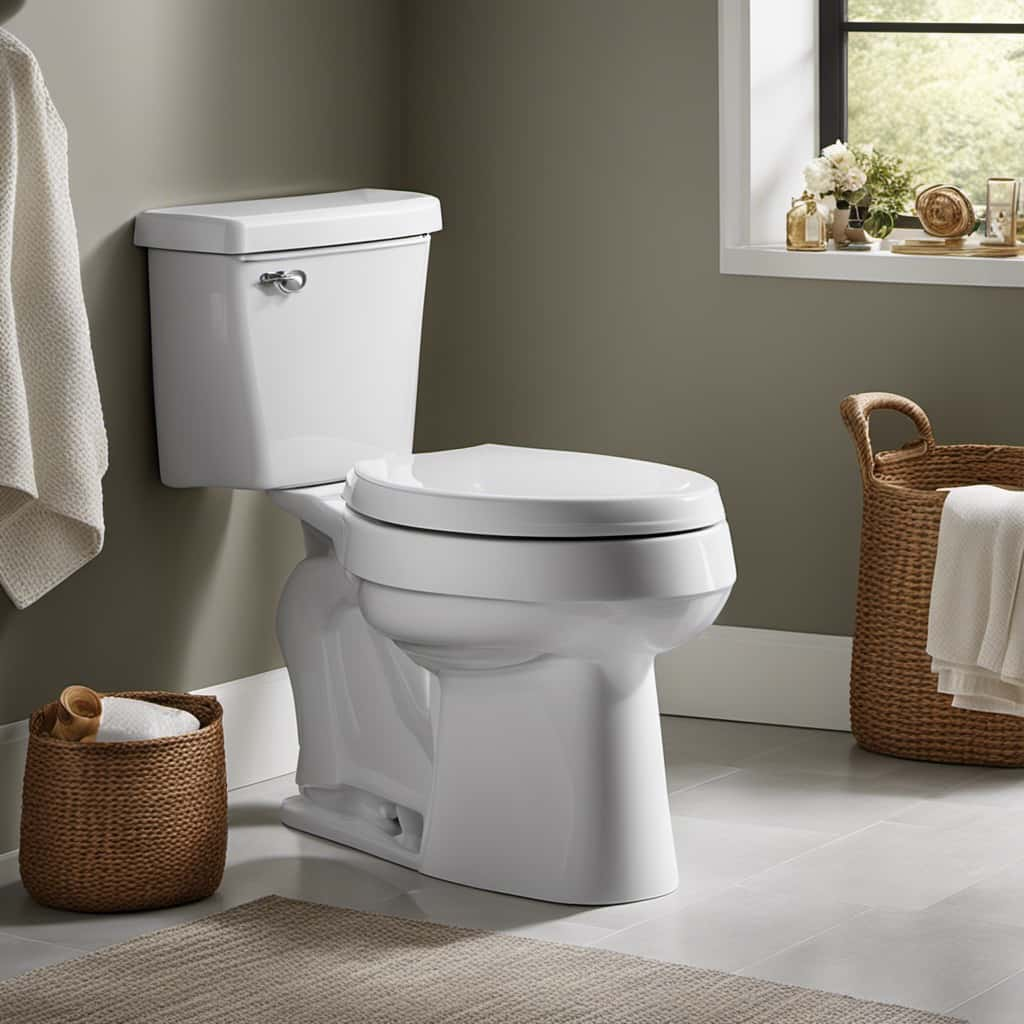
Toilet paper is typically made from virgin or recycled wood pulp, which goes through a manufacturing process that involves pulping, drying, and rolling.
On the other hand, paper towels are usually made from a blend of virgin and recycled fibers, including wood pulp and other materials like bamboo or sugarcane.
The manufacturing process for paper towels is similar to that of toilet paper, with additional steps to enhance absorbency and strength.
Consumer preferences also play a role in determining the composition of these products, as some prefer softer and more gentle toilet paper, while others prioritize absorbency and durability in paper towels.
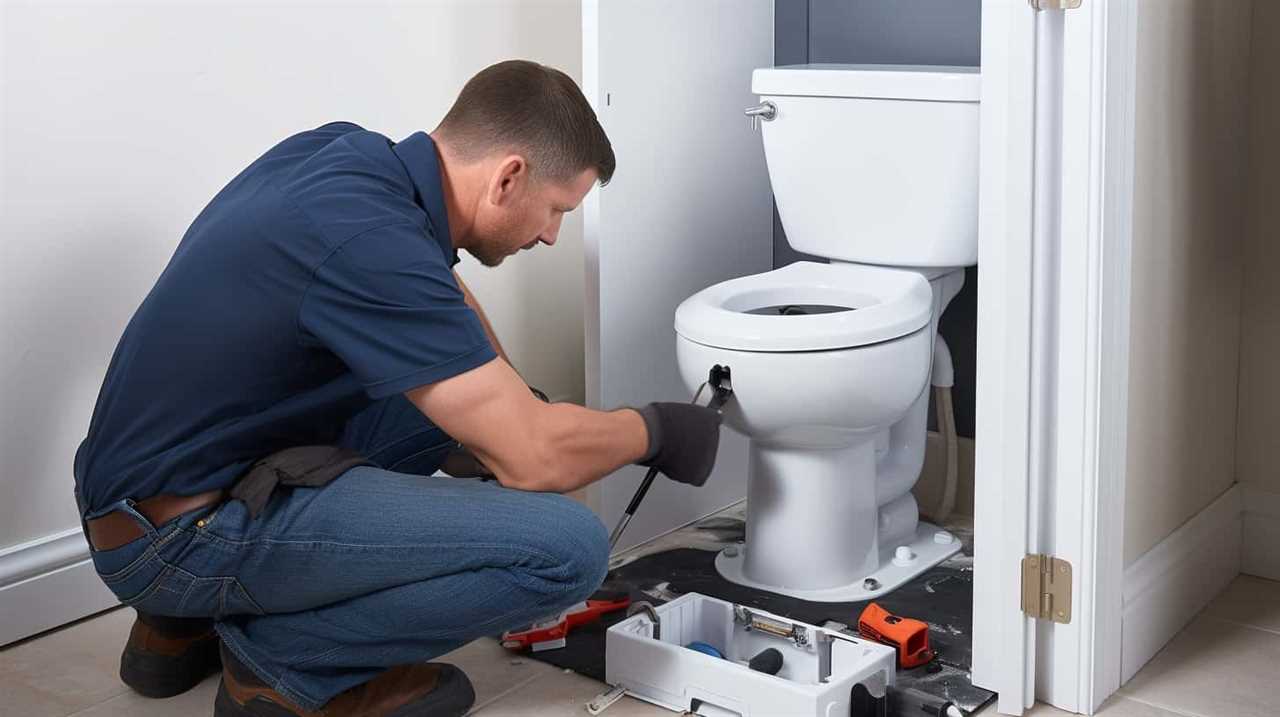
Understanding these differences in composition sets the stage for exploring the subsequent section on the differences in absorbency and strength between toilet paper and paper towels.
Differences in Absorbency and Strength
As we delve into the differences in absorbency and strength between toilet paper and paper towels, it’s important to note that toilet paper is specifically designed to be more delicate and less absorbent than paper towels.
Here is a breakdown of the absorbency comparison and strength analysis between the two:
- Absorbency Comparison:
- Toilet paper is made to quickly absorb and disintegrate in water, making it ideal for flushing.
- Paper towels, on the other hand, are designed to be highly absorbent, capable of soaking up spills and moisture.
- Strength Analysis:
- Toilet paper is intentionally thinner and less durable to allow for easy dissolving in water and prevent clogging.
- Paper towels are engineered to be stronger and more resilient, able to withstand vigorous scrubbing and wiping.
Understanding these differences in absorbency and strength helps us comprehend why toilet paper can be flushed, while paper towels cannot.

Impact on Plumbing and Sewer Systems
To understand the impact on plumbing and sewer systems, let’s examine how flushing paper towels can cause blockages and other issues.
Unlike toilet paper, paper towels are designed to be more absorbent and durable, which means they don’t break down as easily in water. When flushed, they can quickly accumulate in pipes, leading to clogs and backups. These blockages can put a strain on the water supply and potentially cause damage to the plumbing system.
Additionally, the presence of paper towels in sewer systems can interfere with the proper functioning of wastewater treatment plants.
Therefore, it’s crucial to avoid flushing paper towels to prevent the potential for clogs and backups, and to protect the integrity of our plumbing and sewer systems.
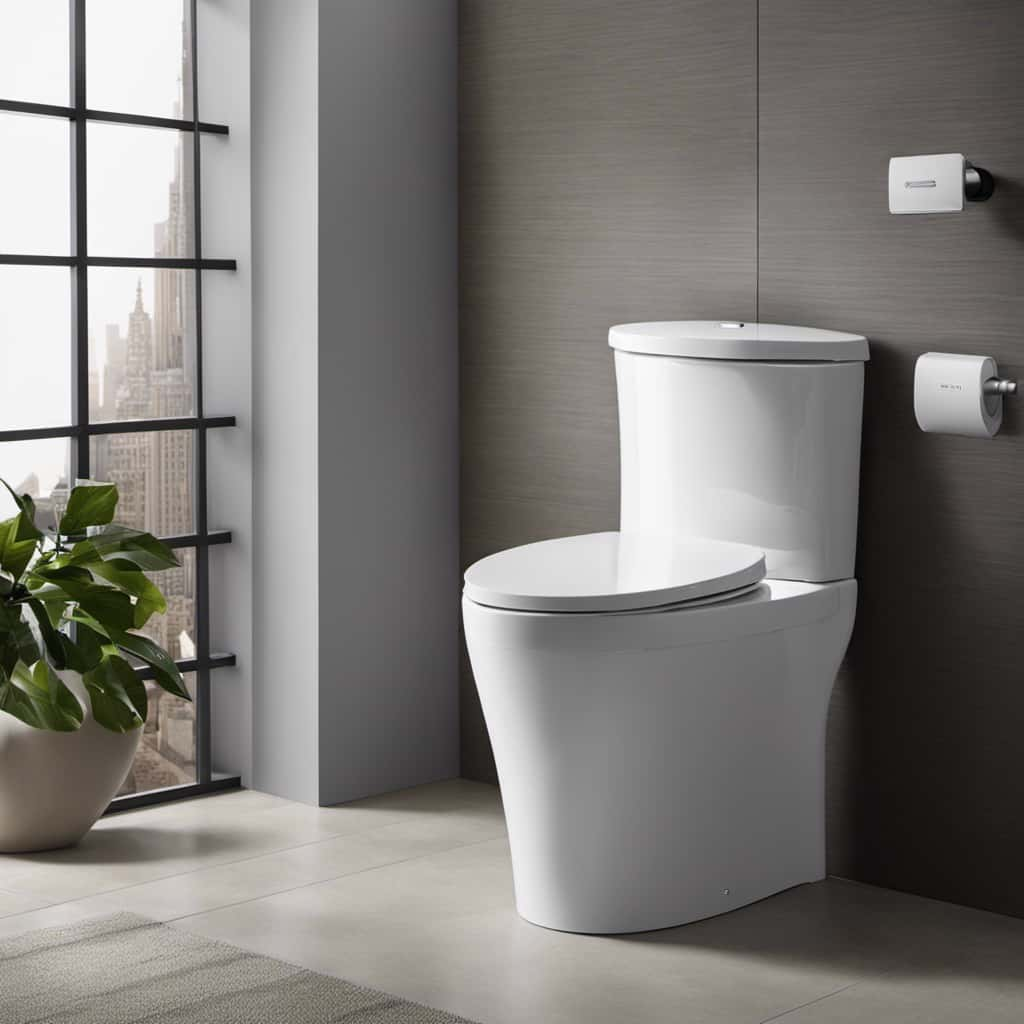
Transitioning into the next section, let’s now explore the environmental consequences of flushing paper towels.
Environmental Consequences of Flushing Paper Towels
Flushing paper towels instead of toilet paper can have significant environmental consequences. Here’s why:
- Effect on marine life: When paper towels are flushed, they can end up in water bodies such as rivers, lakes, and oceans. Marine animals often mistake them for food, leading to ingestion and potential harm. The ingestion of paper towels can cause digestive problems, blockages, and even death in marine organisms.
- Contamination of water sources: Flushing paper towels can contaminate water sources, including drinking water supplies. Paper towels aren’t designed to break down easily like toilet paper. As a result, they can clog pipes and sewer systems, leading to overflows and backups. This can result in the release of harmful bacteria, chemicals, and pollutants into water sources, posing a risk to both human health and the environment.
- Negative impact on wastewater treatment: Paper towels can disrupt the wastewater treatment process. They can clog filters and screens, causing operational issues and increasing maintenance costs. Furthermore, the presence of paper towels in wastewater can reduce the effectiveness of treatment methods, resulting in the release of untreated or partially treated wastewater into the environment.
It is crucial to dispose of paper towels properly, such as in the trash, to minimize these environmental consequences.
Proper Disposal and Alternatives for Paper Towels
We frequently dispose of paper towels improperly, but there are better ways to handle them. Proper disposal of paper towels is essential to minimize environmental impact. Instead of throwing them in the trash where they end up in landfills, consider composting or recycling them. Composting paper towels allows them to break down naturally and become nutrient-rich soil. Recycling paper towels reduces the demand for virgin materials, conserving energy and resources. Additionally, there are eco-friendly alternatives to paper towels that can help reduce waste. Consider using reusable cloth towels or microfiber cloths, which can be washed and reused multiple times. These alternatives not only reduce waste but also save money in the long run. By adopting proper disposal practices and using eco-friendly alternatives, we can make a positive impact on the environment.

| Proper Disposal Options | Eco-Friendly Alternatives |
|---|---|
| Composting | Reusable cloth towels |
| Recycling | Microfiber cloths |
Frequently Asked Questions
Can I Flush Other Types of Paper Products Down the Toilet, Such as Tissue Paper or Napkins?
Yes, we can flush other types of paper products like tissue paper or napkins, but it is not recommended due to potential clogs and environmental impact. Recycling or composting these items is a better alternative.
Is It Safe to Flush Paper Towels in Small Amounts or if They Have Been Used to Clean up Water?
Yes, it is safe to flush paper towels when there is a shortage of toilet paper. However, flushing paper towels can cause plumbing issues due to their thicker and less biodegradable nature.
How Long Does It Take for Paper Towels to Break Down in the Sewer System?
In terms of composition and structure, paper towels are different from toilet paper. Flushing paper towels in the sewer system can have negative environmental impacts. It is important to dispose of them properly.
Are There Any Potential Health Risks Associated With Flushing Paper Towels?
There are potential health risks associated with flushing paper towels. They can clog pipes and cause sewer backups. Proper disposal methods should be followed to avoid these problems and minimize the potential environmental impact.
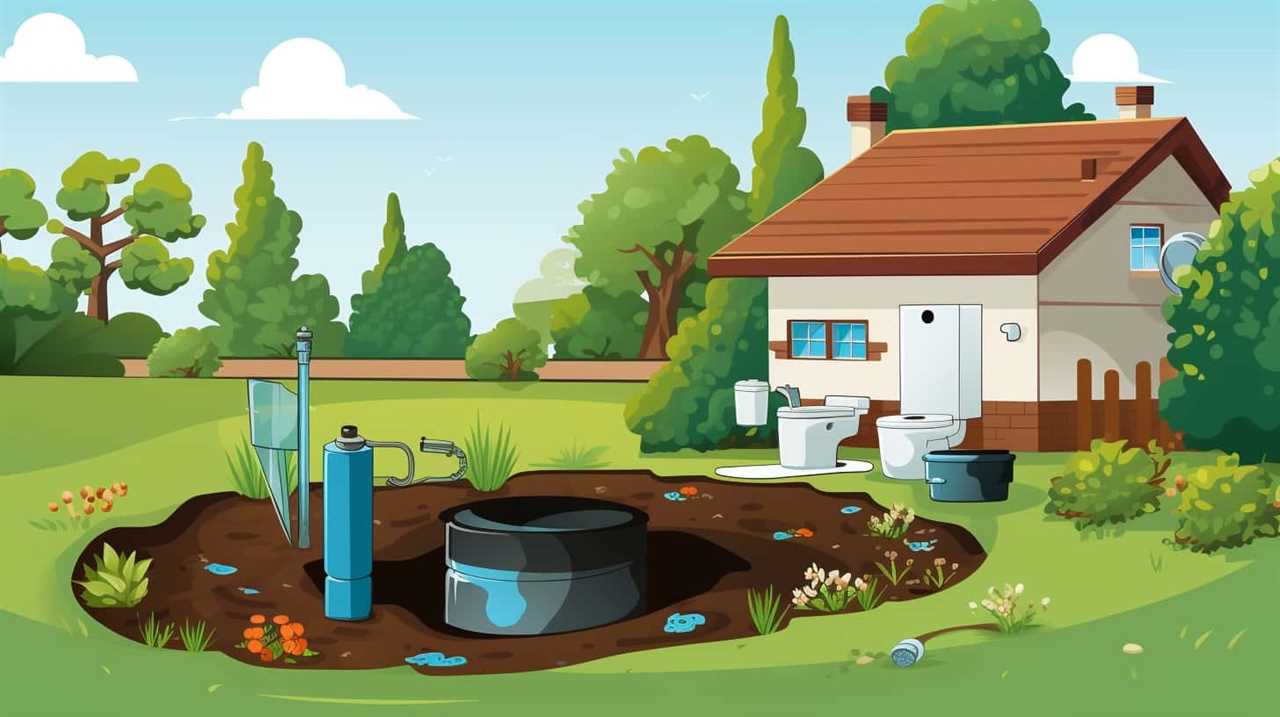
What Are Some Alternative Methods for Disposing of Paper Towels if I Can’t Flush Them?
When it comes to disposing of paper towels, there are alternative methods that ensure proper disposal. Some options include placing them in compost bins, using reusable cloth towels, or disposing of them in designated waste bins.
Conclusion
In conclusion, while toilet paper and paper towels may seem similar, their composition and properties differ greatly.
Flushing paper towels can cause clogs and damage to plumbing systems, whereas toilet paper is specifically designed to break down easily in water.
Additionally, the environmental consequences of flushing paper towels are significant, as they don’t biodegrade as quickly as toilet paper.
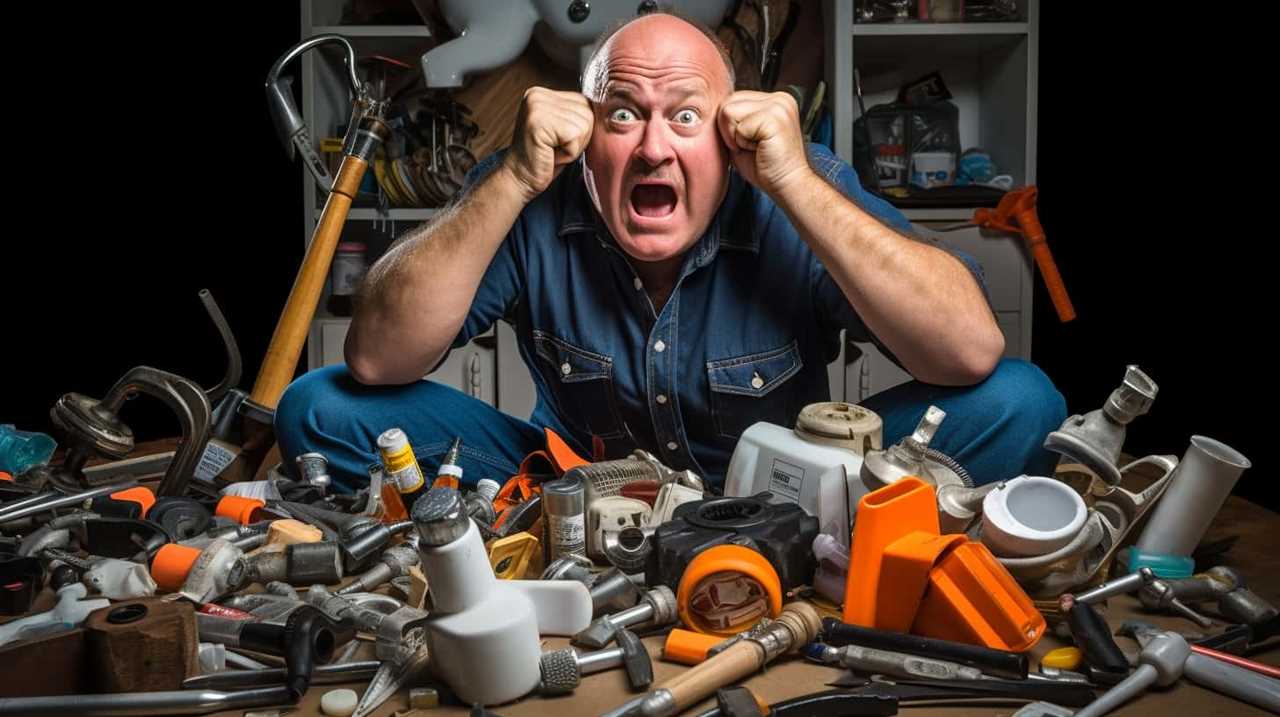
Therefore, it’s crucial to properly dispose of paper towels in the trash, treating them like the stubborn clogs they can create.
